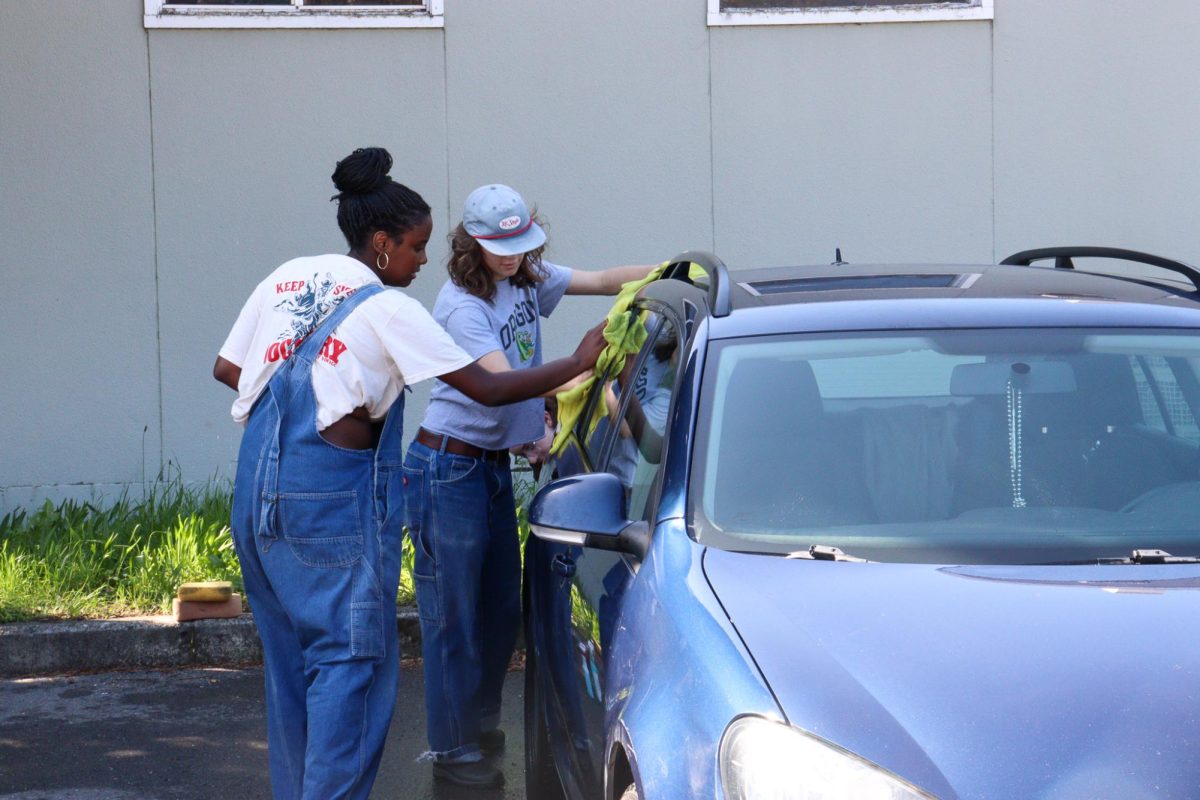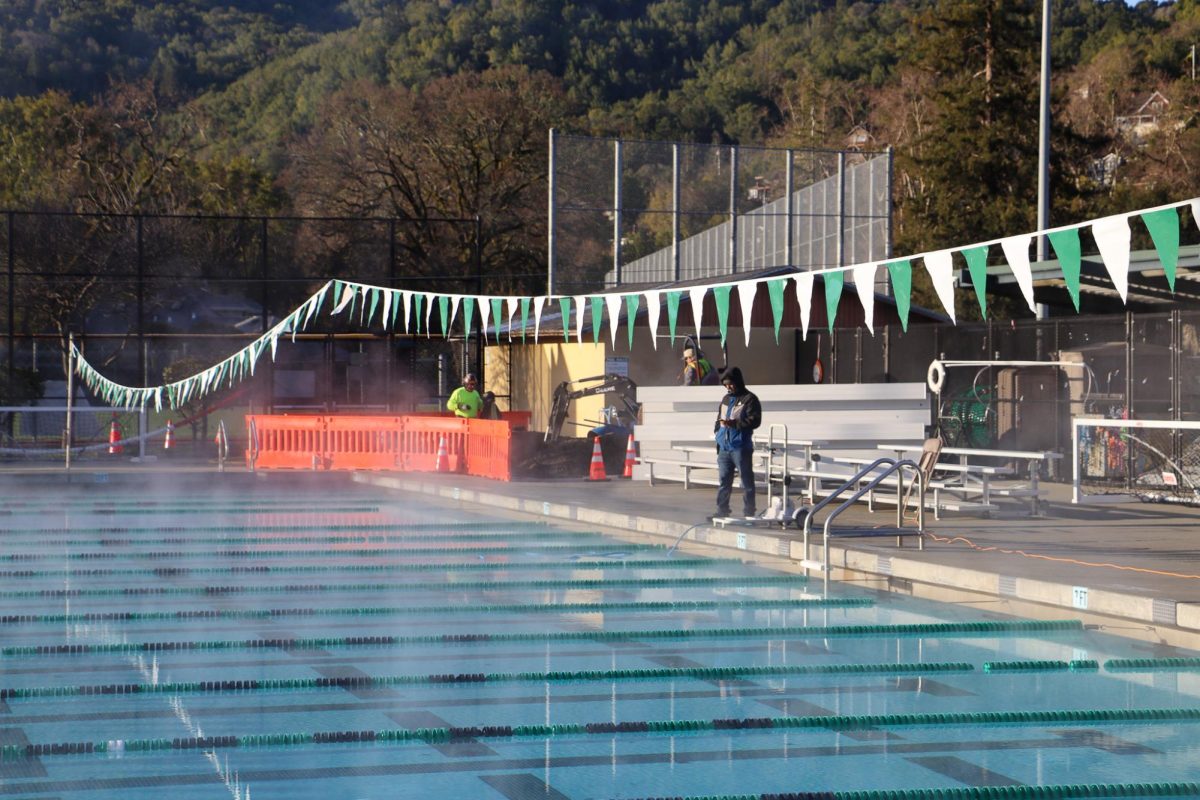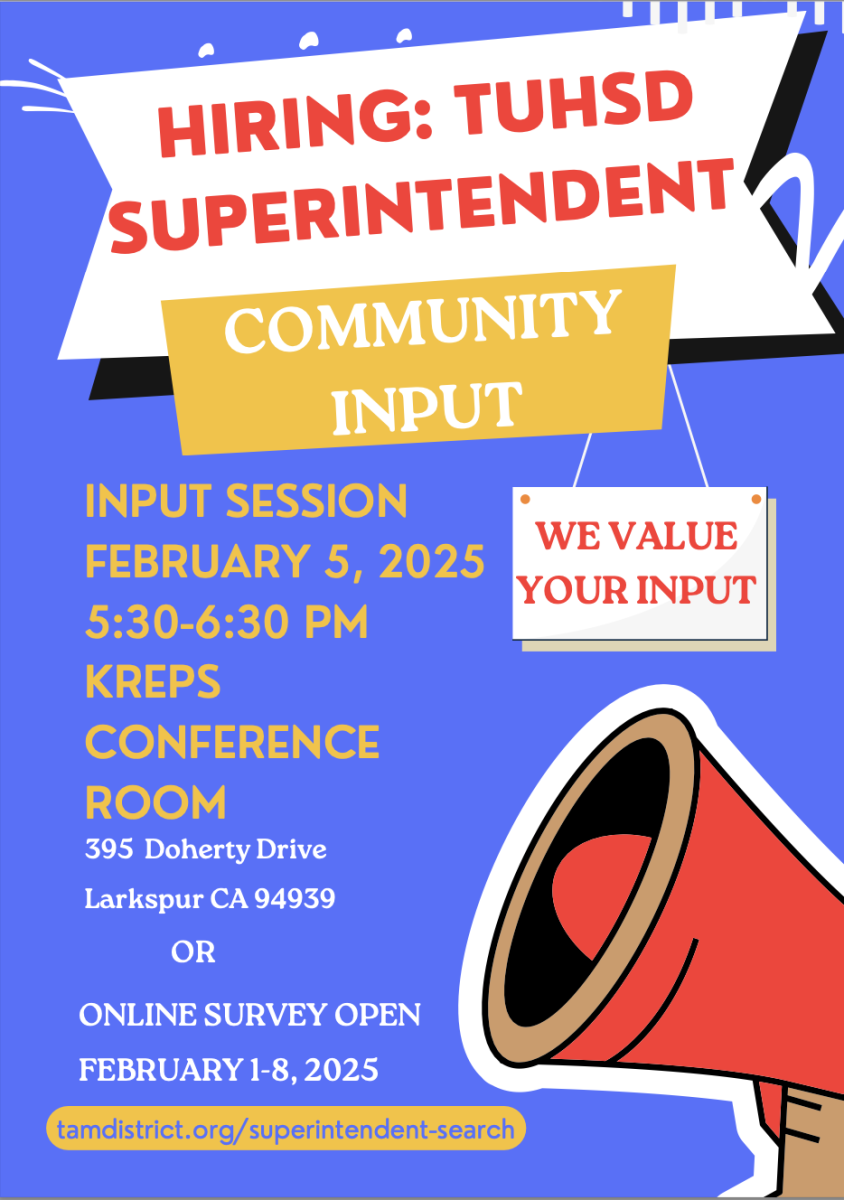On Tuesday, Nov. 19, during their monthly board meeting, the Tamalpais Union High School District (TUHSD) Board of Trustees planned a vote regarding the purchase of cell phone locking containers, called Yondr pouches, for the district. Their decision followed numerous discussions and district surveys weighing the purchase, and nearly 50 community members turned up to watch the proceedings and voice their opinions. Ultimately, after lengthy feedback from students, parents, and teachers, the board decided to table the proposition and reopen it in March 2025.
TUHSD Superintendent Tara Taupier began the meeting’s decision-making segment with a presentation detailing the district’s motivations, findings, and concerns regarding the pouches. After her presentation, trustees and student board members shared their positions, followed by long-lasting public commentary from over 20 individuals.
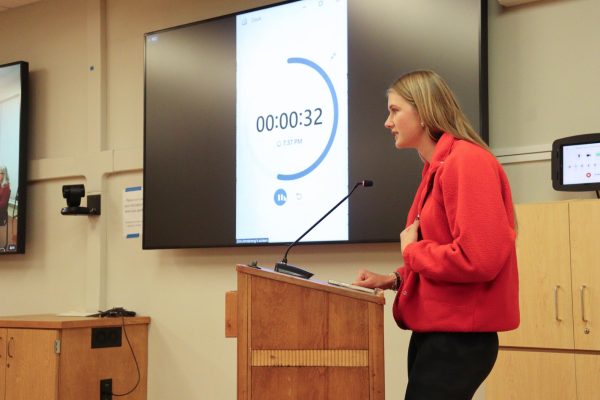
The district’s proposition to purchase Yondr pouches aligns with local and statewide movements that advocate for restricted cell phone use in schools. In January, TUHSD began requiring all teachers to collect student cell phones at the beginning of class, creating a limited phone environment at all district sites. More recently, California Governor Gavin Newsom signed Assembly Bill No. 3216 Sept. 23, requiring that all schools adopt a policy restricting phone use at schools, starting July 1, 2026.
The Yondr proposal originated in the fall, in an attempt to expand district-wide positive educational changes as a result of TUHSD’s current phone policy. If passed, it would require all students in the district to lock their phones in a pouch every morning and keep them in their backpacks before unlocking them at the end of the day. Purchasing the Yondr pouches for the district’s roughly 4,600 students would cost 160,000 dollars in one-time expenses, with expected annual costs of 20,000 to 30,000 dollars.
During the meeting, several students and parents used the public commentary section to request that the money, which would come from the district’s general fund, go towards other areas of need.
“The money could be used for five full days of Wellness [services], healthier meals [in the cafeteria], funds for students who want to go to college but don’t have the money, more field trips that create better hands-on experiences and much more,” said Archie Williams sophomore Ollie Cardwell.
Community members spoke at length not only about financial concerns regarding the pouches but also about worries for student safety, teacher convenience, and abuse of the pouches.
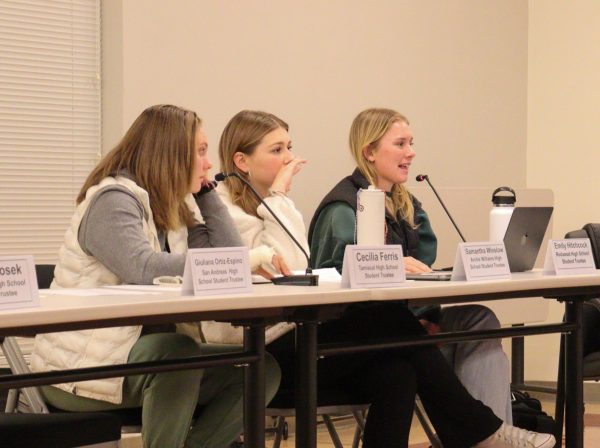
“Implementing [these pouches] will have unintended consequences for the teachers at school. Since the phones are on your person, they’re much easier to break into, as opposed to the caddies teachers can easily see and enforce,” said Redwood High School freshman Nico Less.
Archie Williams Senior Class President Jasper Cohen advocated for himself and his classmates at the meeting, following a survey he conducted of 300 Archie Williams students and parents.
“I did an unofficial study, and we found that 98 percent of our school does not want the Yondr pouches. I understand where [the board is] coming from, I love to spend time with my friends without my phone, I just do not think that this is the right way [to do it],” Jasper said.
Feedback at the meeting from students, teachers, and parents overwhelmingly opposed the purchase of the pouches, but a handful of students endorsed the purchase, believing that their peers would benefit from less screen time overall. Trustee members Kevin Saavedra and Cynthia Roenisch appeared most prepared to commit to the purchase for the same reasons.
“I watched [my kids] struggle to develop a healthy relationship [with] their phone. They’re 25 and 22, and it took them years. It sure didn’t happen in high school… When students are our responsibility within the school day, I think we need to be doing as much as we possibly can, because we do know better,” Saavedra said.
Community commentary continued beyond its allotted time, after trustee Karen Loebbaka asked student attendees if they would willingly comply with a policy restricting phone use during the entire day except lunch. Students responded that more enforcement from staff with the current policy would result in higher student compliance, to which trustees laughed.
“I don’t believe you, sorry,” Roenisch said.
The divisions between those in favor and those not continued to reveal themselves, until a majority wanting another solution for phone-free schools prevailed. After nearly an hour and a half of discussion, the board concluded that the trustees would not vote to pass the proposal at the meeting, instead favoring increased implementation of TUHSD’s current policy and potential pilot programs for Yondr pouches on a group of students.
Moving forward, the board plans to continue their discussion in March 2025, when they will undergo budget planning and two new trustees will have begun their terms. In the meantime, Tamiscal High School student board member junior Cecelia Ferris urges students who disagree with the Yondr proposition to prove they can comply and improve effectiveness with the current, less restrictive policy.
“I always wish you would prove [the board] wrong,” Cecelia said. “I just hear complaining and whining like children. Prove them wrong.”





